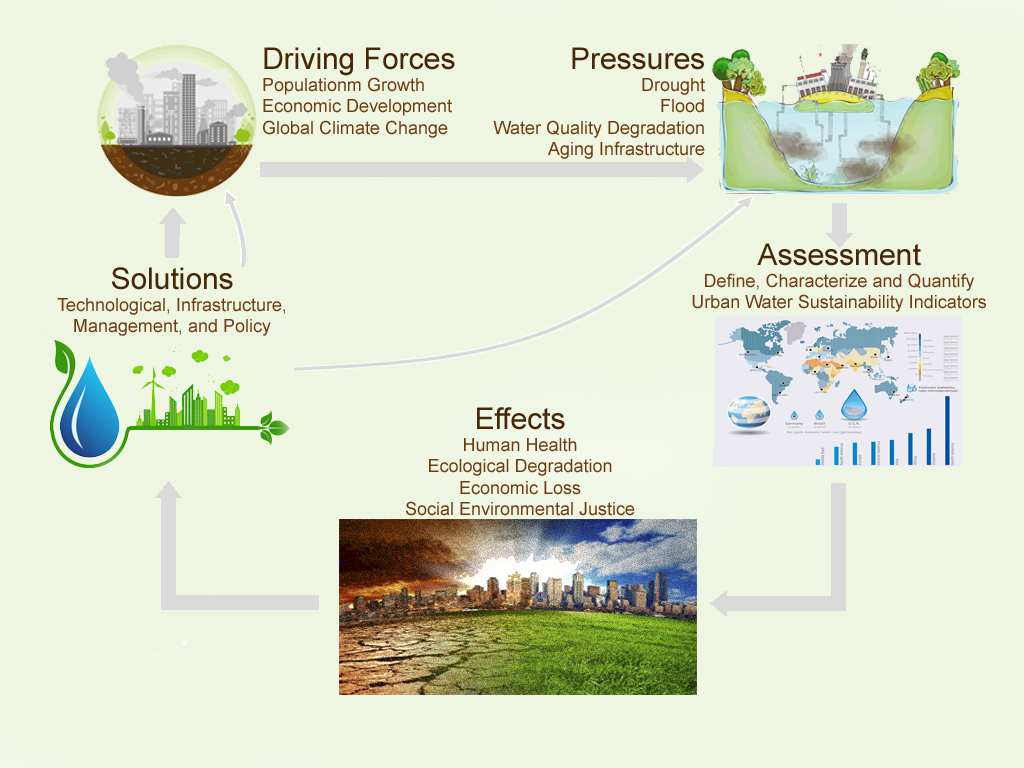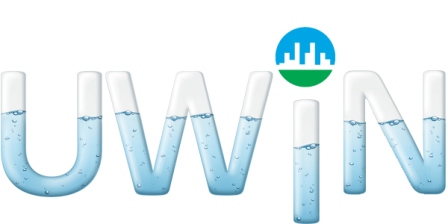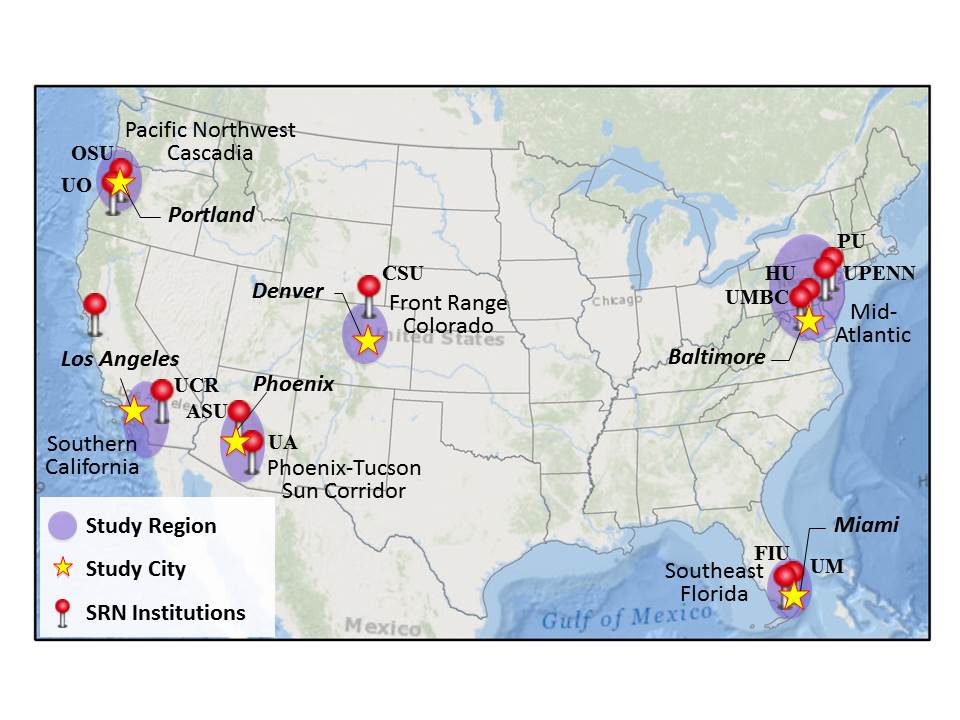Urban Water Sustainability Analysis Framework
Approach
The current state of water systems is unsustainable, with a trajectory toward a feared future, due to ever-increasing pressures from climate change, population growth and changes in demographics and land use, water quality degradation, and aging infrastructure. At the same time, the resilience of water systems has been diminishing due to loss of non-renewable resources, critical infrastructure and the natural capacity to recover from extreme events. To alter this trajectory toward a more desired state, transitions are needed. These transitions are most effective when they foster integration across water sectors, taking advantage of the co-benefits and heeding the tradeoffs.
Our research plans have been developed according to a conceptual sustainability framework. This framework is built around the following key components: reducing pressures; building resilience; increasing transition capacity to adapt and integrate; and identifying co-benefits for linked systems.

Indicators
UWIN is characterizing and quantifying a set of common indicators that define the essential characteristics of urban water systems, allowing classification and comparison of these systems in cities across the U.S. and globally.
Solutions
UWIN activities focus on development of technological, infrastructure and management solutions that facilitate the transition toward integration of water systems, maximizing resource recovery and reuse, and incorporating water-sensitive urban planning.
Thrusts
The UWIN urban sustainability framework guides the development of an ambitious research agenda while ensuring flexibility in response to societal needs through stakeholder engagement and societal learning processes.
Regions
UWIN is establishing six regional urban water sustainability hubs in highly populated regions across the U.S. These regional hubs will serve as innovation centers to help communities transition to sustainable management of water resources.
Study Regions
UWIN activities are conducted in six geographically diverse regions across the country, representing some of the most populated and rapidly urbanizing regions in the Nation. The six regions represent varying ecohydrologic and climatic regimes ranging from coastal moist mid-latitude climates of the Mid-Atlantic to the subtropical semi-arid desserts of the Southwest. These regions also represent a wide spectrum of demographic, cultural and policy settings. Such diversity enables cross-site assessments that facilitate the exploration of locally appropriate sustainable technological, sociopolitical and management solutions across regions undergoing various development trajectories.
Urban Water Blueprint
A key product that emerges from UWIN is a blueprint for integration of urban water systems . This blueprint defines the essential characteristics of coupled natural-built urban water systems and their sustainability to point decision makers toward the most appropriate options and transition pathways for reducing pressures, enhancing resilience, and maximizing cobenefits. This blueprint features common indicators to enable classification of urban water systems in cities across the U.S. and globally. The study regions and cities serve as observatories to identify such key sustainability indicators. The blueprint will foster collection and sharing of common core urban water sustainability data and metrics which are needed for benchmarking, comparing and contrasting cities. The blueprint will also help disseminate broadly relevant best practices and solutions found in the research and engagement with stakeholders, planners, and policy makers.


